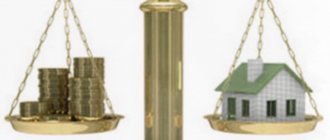A consumer is a client who has purchased a product or ordered a service for personal or family needs.
It is believed that the average customer is weaker than a store, coffee shop or car service center. He cannot immediately and reliably assess the quality of the product or check the composition of the cheesecake; it is easy for him to get confused in the clauses of the service contract. Therefore, it is protected by the Consumer Rights Act.
For violation of consumer rights, entrepreneurs are responsible for three types of liability: civil, administrative and criminal.
We explain what an entrepreneur must do under each responsibility, and how to insure against payments and fines.
Submit reports in three clicks
Elba will calculate taxes and prepare business reports based on the simplified tax system, UTII and patent. It will also help you create invoices, acts and invoices.
Try 30 days free Gift for new entrepreneurs A year on “Premium” for individual entrepreneurs under 3 months
Civil liability for violation of consumer rights
The essence: payments to the consumer for low-quality goods and poor service. The liability applies in conjunction with the underlying obligation, for example to return the marriage fee.
Who is at risk: sellers, contractors, manufacturers, aggregator sites.
Who decides how much and what to pay: the entrepreneur must pay the client according to his application. If he doesn’t, the court will force him to pay.
The payments are:
Losses
Losses - any expenses of the client that arose as a result of:
- Purchasing a defective item, ordering a low-quality service - Art. 18 and art. 29 of the Law.
- Damage to property, harm to health or death of a person due to a defect in a product or service - Art. 7 and art. 14 of the Law.
- Incomplete or incorrect description of the goods, errors in price - Art. 12 of the Law.
- Infringement of his rights by the contract in comparison with the law - Art. 16 of the Law.
- Lack of the ability to pay by card, when by law the store is required to have a terminal - Art. 16.1.Law.
- Loss or damage to the material that he transferred to the performer - Art. 35 of the Law.
Moral injury
Money for moral damage to the client is due if the seller has violated something - Art. 15 of the Law. The size is agreed upon. In case of a dispute, the court will decide.
Penalty
The seller, manufacturer, performer pays the client a penalty for violating the following terms:
— Refunds for defective goods or warranty repairs at 1% of the price of the goods per day - Art. 23 Laws.
- Transfer of paid goods at 0.5% of the advance payment per day - Art. 23.1 of the Law.
- Performing work or modifications at 3% of the price of work per day - Art. 28 of the Law.
Penalty in favor of the consumer
If the client turned to the seller, manufacturer or aggregator with a monetary demand, was refused, but the court sided with him, the defendant pays a fine in the amount of half of the awarded amount - Art. 13 of the Law.
Example of civil liability:
The man had his car's engine chip-tuned at a car service center and installed a new exhaust system for 133,500 rubles.
After some time, the car engine stopped. I had to take the car to another service center. There it turned out that the tuning and installation were done poorly. We had to spend 270,500 rubles on repairs.
The man demanded expenses from the car service center. He was refused, and he went to court.
The court supported the customer and ordered the car service to pay:
— refund of payment — 133,500 rubles.
- losses - 270,500 rubles for repairs, 66,000 rubles for examination of defects.
— penalties for returning payment late — 133,500 rubles.
— moral damage — 5,000 rubles.
— a fine in favor of the consumer for refusing to resolve the money issue peacefully — 271,250 rubles.
— lawyer’s fees — 20,000 rubles.
Case No. 33-39471/2018
Features of collecting a fine
For this issue you need to know the following:
- The basis for the application of this type of punishment is the contractor’s failure to comply with the consumer’s requirements regulated by law on a voluntary basis (for example, the resolution of the 10th AAS dated January 25, 2016 in case No. A41-61405/15). In this case, the court determines whether the consumer applied to the contractor with the relevant requirements in pre-trial order (for example, the ruling of the Moscow City Court dated March 14, 2013 in case No. 11-8157).
- This fine is subject to recovery by a judicial authority, regardless of whether the specified demand was presented to the court (paragraph 1, paragraph 46 of resolution No. 17). The courts directly indicate their own obligation to collect a fine in all cases of satisfaction of consumer demands (for example, the decision of the Sovetsky District Court of Lipetsk dated October 30, 2012 in case No. 2-4901/2012).
- The fine is collected entirely in favor of the consumer, with the exception of cases where claims were filed by public associations or local governments in order to protect the rights of a specific consumer. In this case, half of the collected amount is received by such an organization, and the other half by the consumer himself (paragraph 2, paragraph 46 of Resolution No. 17).
- The fine is not collected from the executor if, after the judicial authority accepted the claim from the consumer, he voluntarily satisfied the latter’s demands, and the plaintiff abandoned the stated claim (clause 47 of Resolution No. 17).
Administrative liability for violation of consumer rights
The essence: a fine in favor of the state for deceiving the consumer, infringement of his rights under the contract, poor quality of goods and services. Applies regardless of civil liability.
Who is at risk: sellers, performers, contractors, manufacturers, aggregators.
Who fines: Rospotrebnadzor after a scheduled inspection or consumer complaint. The fine can be appealed to the arbitration court.
The fines are:
— The product does not match the quality samples. Works and services not in accordance with GOSTs and technical regulations - from 10,000 to 20,000 rubles for individual entrepreneurs, from 20,000 to 30,000 rubles for organizations. In case of repeated violation, the fines are one and a half times higher, plus confiscation of goods - Art. 14.4 Code of Administrative Offenses of the Russian Federation.
— Weighing and calculating the client — from 3,000 to 5,000 rubles for individual entrepreneurs, from 20,000 to 50,000 rubles for organizations — part 1 of Art. 14.7 Code of Administrative Offenses of the Russian Federation.
— Deception about the properties and quality of a product for the purpose of sale — from 3,000 to 5,000 rubles for individual entrepreneurs, from 100,000 to 500,000 rubles for organizations — part 2 of Art. 14.7 Code of Administrative Offenses of the Russian Federation.
— There is no information about the product, manufacturer, seller, operating mode — from 5,000 to 10,000 rubles for organizations — part 1 of Art. 14.8 Code of Administrative Offenses of the Russian Federation.
- The terms of the contract with the consumer are worse compared to the law - from 10,000 to 20,000 rubles for organizations - part 2 of Art. 14.8 Code of Administrative Offenses of the Russian Federation.
- Failure to provide the client with the required benefit - from 5,000 to 10,000 rubles for organizations - part 3 of Art. 14.8 Code of Administrative Offenses of the Russian Federation.
— There is no acquiring terminal, if by law there must be one — from 30,000 to 50,000 rubles for organizations — part 4 of Art. 14.8 Code of Administrative Offenses of the Russian Federation.
- Violation of the rules for the sale of certain types of goods - from 300 to 1,500 rubles for individual entrepreneurs, from 10,000 to 30,000 rubles for organizations - Art. 14.15 Code of Administrative Offenses of the Russian Federation.
Example of administrative responsibility:
Rospotrebnadzor inspected the confectionery following a complaint from a customer. She claimed that the ingredients in the cake she purchased were not what was listed on the label.
Indeed, experts found almonds in the cake, although they were not listed in the description of the composition. And vice versa: bananas were not found, although they appear on the label.
The entrepreneur was fined 12,000 rubles in favor of the state under Art. 14.7 Code of Administrative Offenses of the Russian Federation.
Case No. A79-10262/2015
For commercial activities
The most resonant case was the “case of three ATVs.”
The young man purchased them at the end of 2014. A couple of months later I contacted the service center with a request to repair the cars. Then he went to the car dealership and demanded that the sales contract be terminated and a large amount returned to him. They say the product is defective. But he was refused. In court, he claimed a violation of consumer rights. And he even won the trial in the first instance. The car dealership was obliged to return the money, pay interest on the loan agreement for the plaintiff (the ATVs were purchased on credit), pay a fine and compensation for moral damage. But the regional court overturned this decision and refused to satisfy the claim.
“It turned out that the plaintiff provided ATV rental ,” explained Dina Yagupova, assistant to the chairman of the regional court. — The examination found that they were used in violation of operational requirements. They were also involved in the work of the stud farm when performing daily tasks, in particular for transporting hay.
The panel came to the conclusion that the plaintiff is not a consumer in the sense given to this definition by the law “On the Protection of Consumer Rights.” He used ATVs for commercial activities, which was confirmed by witnesses. And such legal relations are regulated by the general provisions on sales contracts.
Such disputes should be resolved according to the Civil Procedure Code of the Russian Federation, and not according to the law on the protection of consumer rights. Although courts usually take into account both documents. In essence, the legal framework divides buyers into two categories: businessmen and everyone else. The same position was confirmed in a parallel trial.
An Oryol resident with an individual entrepreneur certificate bought the truck as a private individual. I signed an agreement and paid a deposit. The car was not delivered to her on time. She filed a claim and the dealership returned the money. The businesswoman did not calm down and in court demanded a fine and compensation for damages from the seller. She was refused on the same grounds as the owner of the ATVs.
“A consumer is a citizen who purchases and uses goods, works and services exclusively for personal, family and household needs, as well as for other needs not related to business activities,” explained Oksana Zabelina, a member of the regional judicial panel for civil cases.
The plaintiff must prove that he is a consumer in the sense in which this concept is defined by law. The product should be purchased for the family, and not in order to make money from it. The plaintiff stated that she needed the truck for her personal farming. But the court found out that she owned a cargo transportation company and decided that the car could also be used for commercial purposes.
“According to Article 469 of the Civil Code of the Russian Federation, the seller is obliged to transfer to the buyer goods, the quality of which corresponds to the purchase and sale agreement,” explained judge Sergei Dolzhikov. — If the seller, at the conclusion of the contract, was informed by the buyer of the specific purposes of the acquisition, then he is obliged to transfer the goods suitable for use in accordance with these purposes.
Therefore, if the car dealership knew that ATVs were needed for rental, they might have offered another, more reliable model. But the buyer didn't mention this. Therefore, according to the Civil Code of the Russian Federation, he has the right to demand only a proportionate reduction in price, elimination of product defects, or reimbursement of repair costs. But not a fine, as in the case of violation of consumer rights.
Criminal liability for violation of consumer rights
The bottom line: a fine to the state or a prison sentence for unsafe goods and services if people were hurt or killed because of them. Applies regardless of civil liability.
Who is at risk: a specific person - the director of a company or an entrepreneur.
Who decides: first, investigators initiate a criminal case under Art. 238 of the Criminal Code of the Russian Federation and prove the guilt of the accused of a crime. Then the materials are sent to the court for sentencing.
The punishment is:
Trade, provision of services and performance of work in non-compliance with safety requirements or forgery of quality documents - from a fine of 300,000 rubles to ten years in prison under Art. 238 of the Criminal Code of the Russian Federation.
Amount of fine under the consumer protection law
As Article No. 13 of the Law of the Law states, the fine in such cases is fifty percent of the total amount of the claim.
The cost of a claim can be made up of factors such as:
- amount of monetary obligations of the plaintiff to the defendant;
- the amount of damages incurred by the plaintiff , including the costs of the trial and examinations carried out;
- penalties;
- compensation for moral damage.
Is it possible to reduce the fine?
If the plaintiff is interested in increasing all amounts that will have to be paid to him, then the defendant, accordingly, is interested in reducing them. But is this possible? And if so, in what situations?
A study of law enforcement practice shows that this is indeed allowed, but in exceptional cases, when imposing a fine of 50% would be unfair and disproportionate to the seller’s fault. This can be explained using an example: let’s say the seller sold defective products, but the defect arose due to the fault of the manufacturer, who declared himself insolvent. In this case, we are talking about an expensive product, that is, the amount is serious. And taking into account the declared damage and other costs, it becomes even greater.
However, it is worth emphasizing once again: we are really talking about isolated cases, and several factors should speak in favor of reducing the cost of the fine. And the court often takes into account whether the seller is able to pay the full amount. That is, in relation to large retail chains, such a decision is unlikely.
Moreover, the court itself does not have the right to reduce such an amount on its own initiative. He may satisfy a reasoned request from the defendant. In its decision, the court must justify the choice made (if the amount of the fine is nevertheless decided to be changed). Typically, in such situations, the court proceeds from the fact that such a payment is a form of penalty. Therefore, it can be reduced.
But some experts believe that such actions are unlawful. They refer to a direct indication in the law, where the specific amount of the fine (50%) is strictly fixed. Based on this position, even if the court decides to reduce the payment, it can be challenged, and the likelihood of a successful appeal is very high.











